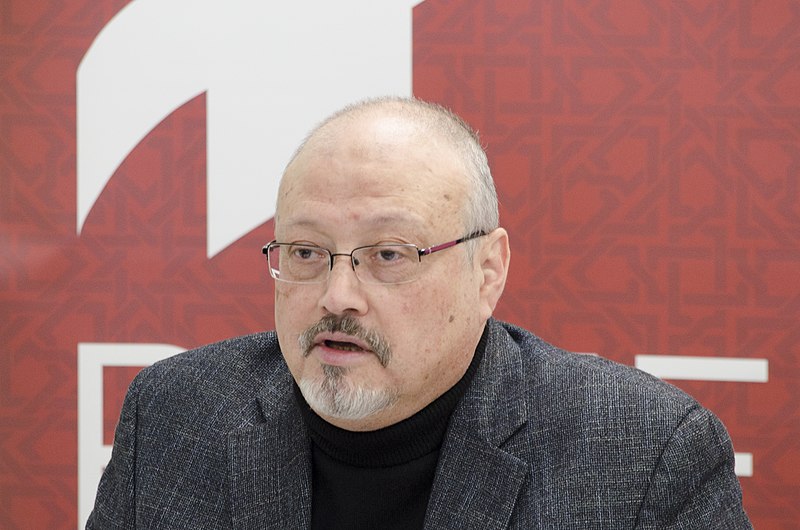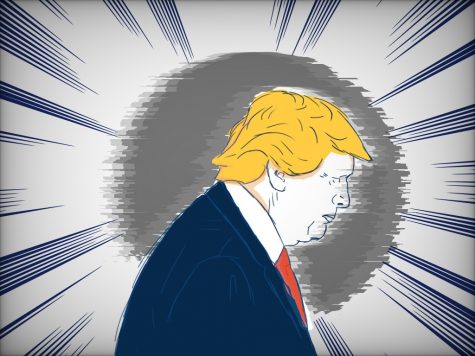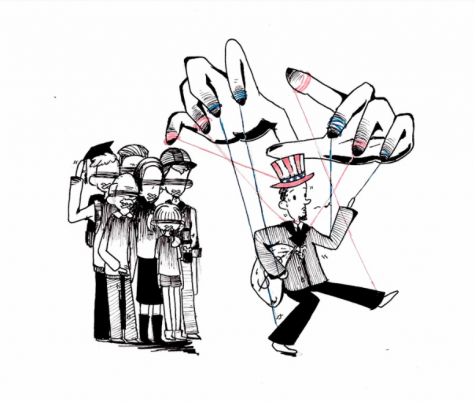Khashoggi: Free Speech Martyr or Another Forgotten Victim?
April Brady for Project on Middle East Democracy
Khashoggi at a conference in March, 2018
Jamal Khashoggi is dead, murdered by the government that he so rightfully criticized. He entered the Saudi consulate in Istanbul under the premise of getting divorce papers (papers which were redirected from the embassy in Washington, DC) for his upcoming wedding and never left the compound.
This was not an “altercation,” as the Saudi government originally claimed – this was premeditated murder. Khashoggi was out of shape and nearly 60 years old, and his opponents were multiple assassins purposefully flown into Istanbul to kill him. The Independent reports that Khashoggi’s divorce papers were redirected to Istanbul because, in the words of a friend of Khashoggi, “they would not have dared to do what they did in Istanbul in America.”
Despite the fact that this incident happened on Turkish soil, not in Washington, the U.S. is still obligated under the precedent that it set for itself in Operation Desert Storm in 1991 and today’s Operation Inherent Resolve to punish those in the Middle East who restrict human rights.
So why does the United States continue to treat the Saudis as allies in the Empire of Liberty? The answer is simple: The United States has abandoned its morals and values in favor of access to a steady flow of oil.
The entire basis of the U.S. mission in the Middle East, at least in an unofficial capacity, has been in pursuit of the region’s coveted black gold. This not-so-subtle cynicism has continuously undermined the more respectable counter-terrorism mission listed in official U.S. policy papers.
Involvement with Saudi business directly contradicts this mission. Edward Clifford of the Brown Political Review posits that the Kingdom of Saudi Arabia is already one of the biggest supporters of terrorist organizations, with money tied to Saudi Arabia (found by the U.S. government’s intelligence community and leaked by WikiLeaks) given to likes of Al-Qaeda. We have been actively funding a government which funds the very thing we are officially fighting against.
The killing of Khashoggi is simply another step in the wrong direction for Saudi Arabia-U.S. relations, and an unconvincing attempt by the U.S. at chastising the Saudis will damage our relationship even further.
Now that they directly contradict not one but two firm U.S. policies on human rights and terrorism in the Middle East, any sort of relationship between the two nations must be cut. Particularly considering the daily killings of Yemeni citizens in haphazard Saudi airstrikes, the Saudi government has simply transgressed too much against core U.S. values and goals to be treated as a trading partner anymore, let alone a close ally. This sordid relationship has robbed the U.S. government of legitimacy in the Middle East since the beginning of the “War on Terror.”
Now that the Saudi royal family is carrying out killings of journalists abroad, everything we previously thought about free speech in the Middle East has been flipped on its head. The progress of the Arab Spring – the series of reformist protests and uprisings in the Middle East that reached its peak in 2011 – and other modernization movements has been wiped out with one fell swoop by King Salman’s regime.
One fact stands: if the United States is to carry out any military actions in the Middle East on the basis of the freedom and wellbeing of the people there and at home, we must stop all trade with Saudi Arabia and acquire more of our oil from other sources like Canada and Latin America.
Make no mistake: the killing of Khashoggi has forced this administration’s hand, and their reaction in the coming weeks will set an example of how America deals with those who oppose her, whether our response be for better or for worse.













